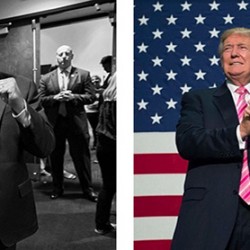Social Potential
Can spending time online translate into citizen action?
Social media is part of the fabric of daily life for millions of people around the world, especially those who came of age in the decade since the advent of Facebook, Twitter, and other popular online platforms for sharing photos, news articles, and opinions.
Campaigns, candidates, and causes have staked out real estate in these virtual spaces, but activities such as following candidates on Twitter or signing online petitions have earned a derisive term: slacktivism. The word, derived from slacker, means doing something online in support of a political or social cause rather than participating in person, which requires more time or involvement.
But up until now, researchers have not looked into whether social media’s influence on political participation is merely hype or if it holds the promise of something more, especially among people under the age of thirty.
“This is a fundamental time at which they are forming habits of citizenship,” says Michael Xenos, a UW communication arts professor who is studying social media’s role in that process and whether it can transform a generation of young users into engaged and active citizens.
Xenos has spent his career examining the effects the web has on politics and how satirical programs such as The Daily Show affect what young people learn about politics and current events. Now he is collaborating with colleagues in Australia and Great Britain on a survey of more than 3,600 people between the ages of sixteen and twenty-nine in those countries and in the United States.
Xenos and his colleagues are still in the early stages of analyzing the results, but he says that so far, one thing is clear: “Social media is strongly associated with getting involved.”
The survey measured involvement by asking participants questions about their civic or political engagement. Do they try to influence how others vote? Do they donate money and get involved in political campaigns? Do they raise money for charity? Do they boycott certain products or services for ethical, moral, or political reasons?
The survey also measured how much time young people spend on different social media platforms and gauged their attitudes about citizenship and their political experiences growing up, including whether they discussed politics in school and at the dinner table.
Unlike many other studies, which tend to focus solely on political use of social media and its effect on participation, Xenos and his colleagues looked at time spent with social media overall, which includes looking at photos of your college friend’s vacation or your nephew’s first day of school. The reason? Even social media users who are not interested in politics need only be connected to a handful of interested and engaged people to be regularly exposed to political issues and information, especially during election years, when there is more activity online.
This mode of engagement fits what Xenos found in a related study in which he and his colleagues conducted focus groups with college students involved in organizations ranging from Habitat for Humanity to Humans vs. Zombies to College Republicans. “More and more young people see politics in a networked way,” Xenos says, adding that they are less dependent on institutions and traditional groups.
More than academic inquiry is at stake here: there is the potential to unearth how social media could not only mobilize people, but also broaden political participation, especially among groups in which large numbers of people don’t get involved at all.
Socioeconomic status and political participation are strongly linked: young people whose parents went to college and who grew up in families that discussed politics at the dinner table are more likely to participate in politics. But because social media use by young people is uniformly strong across social and economic groups, Xenos sees an opportunity and some reasons for hope. More young people might get involved in the democratic process, he says, if parents and teachers help them to view social media as a venue for engaging with social and political issues.
“We might see a weakening of the traditional class-and-political-participation relationship over time,” he says.
So far, there is no evidence that social media alleviates inequalities in political participation, but a look back suggests Xenos is on to something. In 2001, long before Mark Zuckerberg launched Facebook as a college student at Harvard, an academic paper titled “Social Implications of the Internet” observed that scientific literature about politics online had progressed through three stages: unjustifiable euphoria, abrupt and equally unjustifiable skepticism, and “gradual realization that web-based human interaction really does have unique and politically significant properties.”
Published in the Fall 2014 issue



Comments
No comments posted yet.